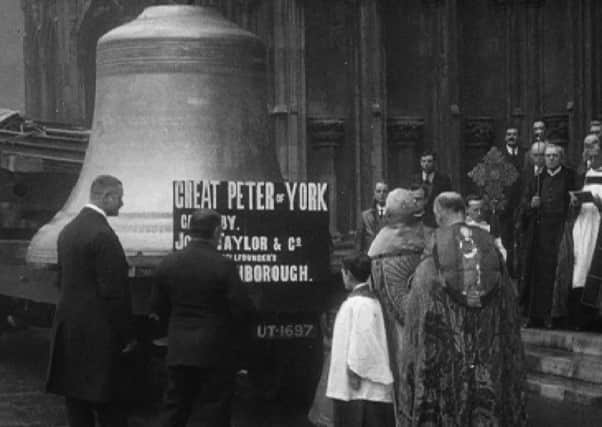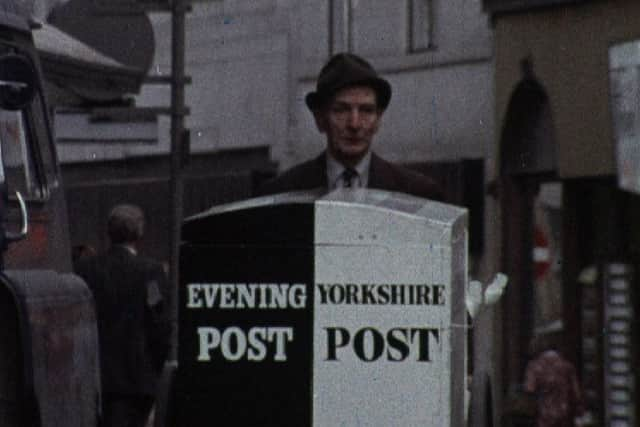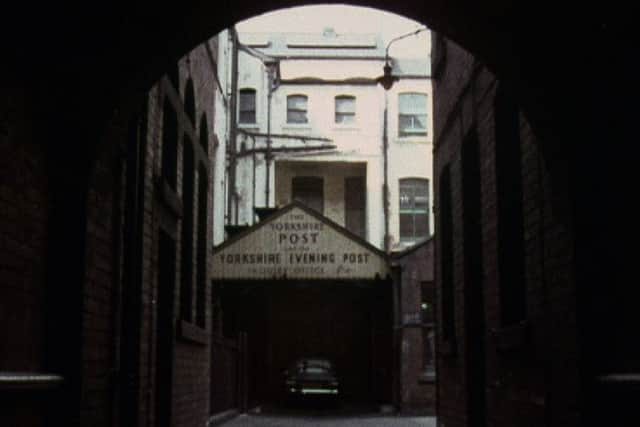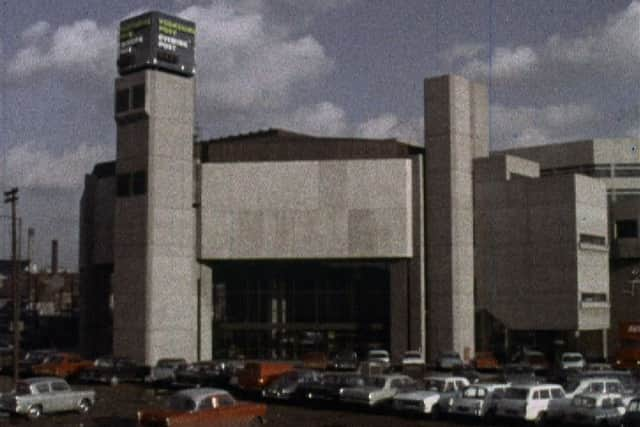Video: View historic Yorkshire film archive online


From intimate family portraits to significant historical events, thousands of films have been made available to the public online on the BFI Player as part of the £15m Lottery-funded Britain on Film project.
Yorkshire Film Archive, which is based at York St John University, worked with the BFI to make part of its 50,000-title archive available. The local footage unveiled today includes some of the earliest films recorded in the region - including footage from the start of the 20th century, little over a decade after Louis Le Prince filmed the world’s first moving images in Leeds in 1888.
Advertisement
Hide AdAdvertisement
Hide AdThe selection includes a 1970 film about The Yorkshire Post, called Third Century: The Story of Yorkshire Post Newspapers, which gives viewers an insight into the world of Yorkshire’s National Newspaper when it printed six editions a day from the newly-opened brutalist building on Wellington Street, Leeds, at a time when journalists ran to red public telephone boxes to post their scoops.
Other Yorkshire highlights include The Bradford Godfather, an extract from a 1974 documentary portrait of Mohamed Fazal Hussain who, more than forty years ago, was one of the first immigrants from Pakistan to settle in Bradford.
An endearing glamorisation of Sheffield, which sees the city council seek to persuade businesses from the south to relocate, debunking stereotypes of it being “like the inside of a chimney” is examined in Your Next Move, from 1981.
It highlights the best about the city, including surrounding countryside, the transport, and the Crucible Theatre, and paints a vivid picture of Sheffield during a pivotal transitional period in its history.
Advertisement
Hide AdAdvertisement
Hide AdAlso from South Yorkshire, the innocence of childhood is on view in a film of pupils of Birdwell Primary School, taken over several years in the early 1960s in Birdwell Primary School May Queen & School Centenary.


A historic day at York Minster is captured in Great Peter of York (1927), when a large crowd and choir were on hand on greet the arrival of a replacement bell, watching and singing as labourers manually slide the 10-tonne bell off a truck.
Whitby can have rarely looked so poetic as in Whitby’s Herring Industry, an atmospheric film from the 1950s showing its harbour bulging with traditional fishing trawlers.
Hull is described as “a place of rare splendour” in Davy Crockett (1955), as a police officer playing Davy Crockett rides through the city as if just arriving fresh from the Battle of the Alamo.
Advertisement
Hide AdAdvertisement
Hide AdFinally, long before Last Tango in Halifax brought the town to the small screen, This Town of Ours shows Halifax emerging into the 1970s, from the making of Quality Streets to its new high-rise flats, markets, pubs and recent immigrants.


The films can be searched for by location through the BFI Player’s new Film and TV Map of the UK, which also enables people to share films with their family, friends and communities.
Robin Baker, head curator at the BFI said: “For 120 years cameras have captured almost every aspect of life in the UK on film, but too often these have been inaccessible to all but the most determined researchers. Now, Britain on Film is transforming access to films from the UK’s archives and giving new life to them by making them available, no matter where you live.”
The project, which began in 2012, brought together national and regional film archives and digitising will continue until the end of 2017. Both professional and amateur footage sits alongside newsreels, advertisements, home movies, forgotten TV shows, and films by government departments all offer surprising insights into British life in the 20th century.
Advertisement
Hide AdAdvertisement
Hide AdYorkshire Film Archive’s archive manager, Graham Relton said: “Yorkshire Film Archive have been delighted to work with the BFI to make more of our collections accessible via the BFI Player and, in the coming months, via the YFA website.


“The strength of our regional content is in its ability to re-connect audiences with film made in, or about, their own communities – people have a sense of ownership of these images, and have their own stories to share.”
Britain on Film also includes a number of public events taking place across the summer, with a screening programme of feature films and bespoke Britain on Film packages at National Trust sites from late August to October, including Fountains Abbey and Studley Royal in North Yorkshire.
Highlights of films from the region will also be shown at The Screen at Trinity, a large digital screen gracing the outside of Trinity Leeds shopping centre this afternoon.